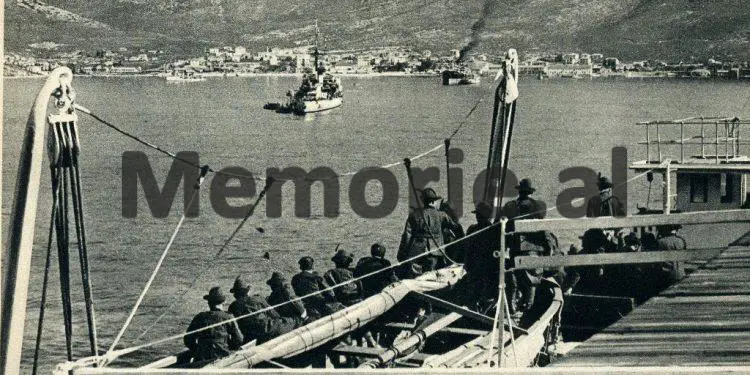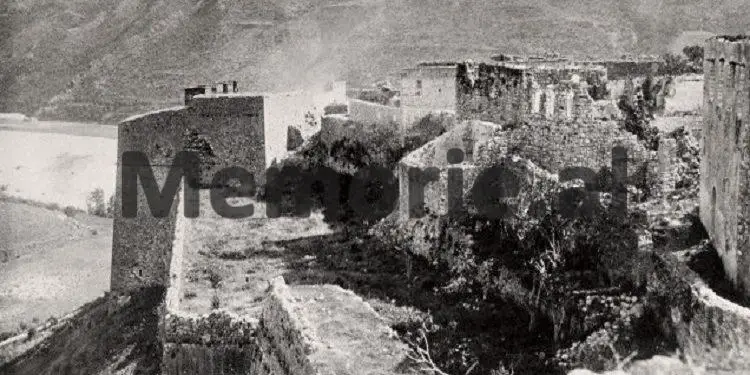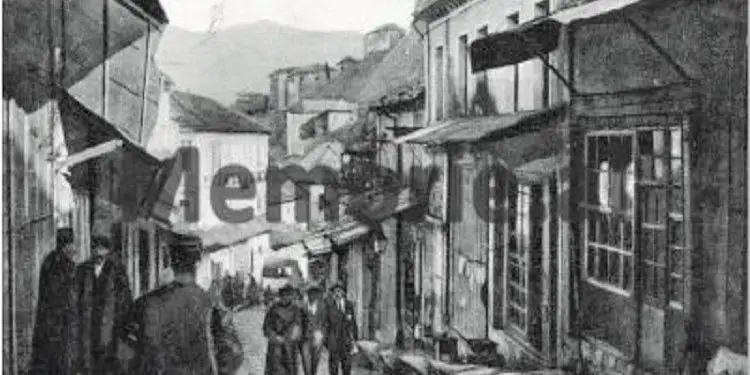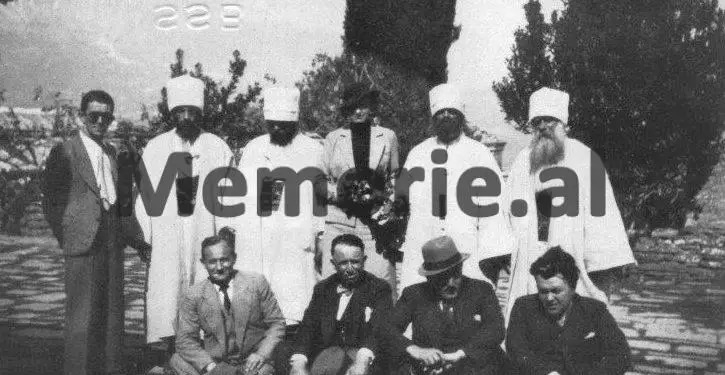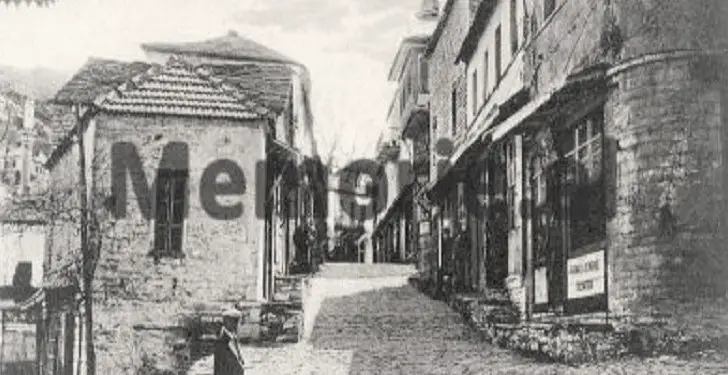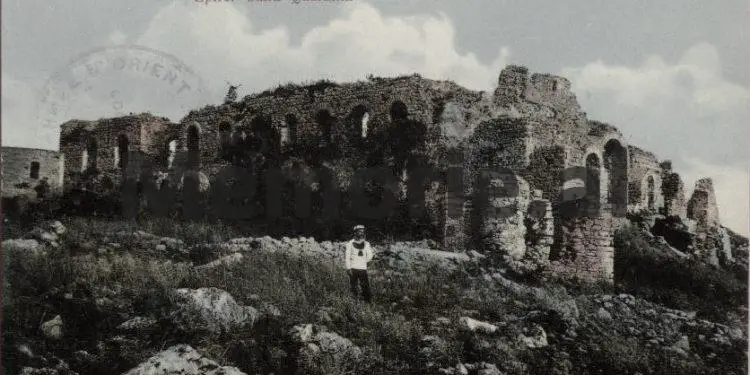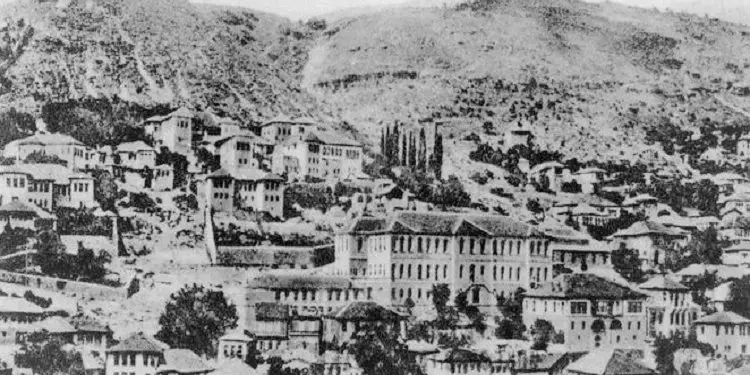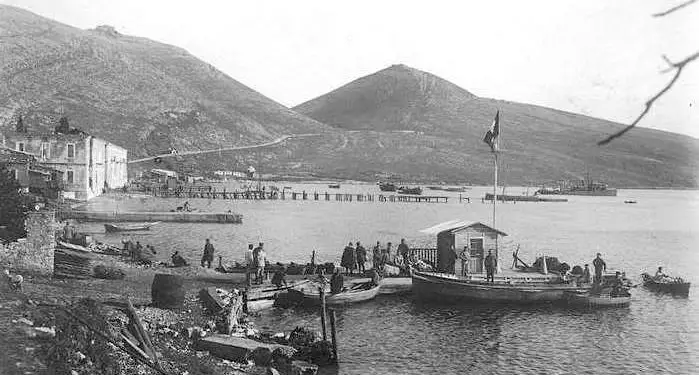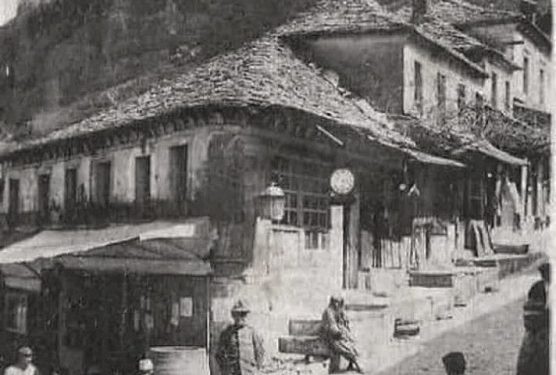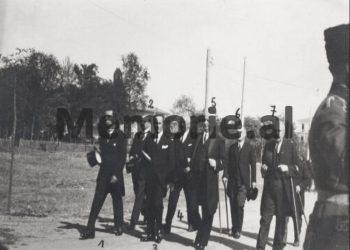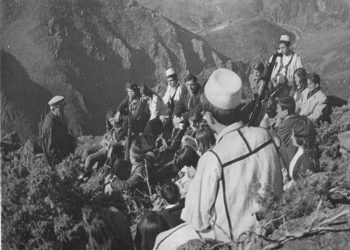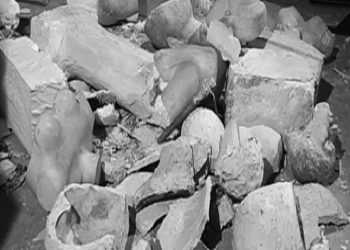By Sven Aurén
Translated by Adil N. Bicaku
Part twenty-seven
ORIENTI EUROPE
Land of Albania! Let me bend my eyes
On thee, thou rugged nurse of savage men.
Lord Byron.
In the book “Orient of Europe”, the author of the work is the Swede Sven Aurén. They are impressions of traveling from Albania from the ‘30s. His direct experiences without any retouching.
In a word, the translation of the book will bring to the Albanian reader, the original value of knowing that story that we have not known and we continue to know it, and now distorted by the interests of the moment.
Now a little about what these lines address to you: My name is Adil Bicaku. I have worked and lived for over 50 years in Sweden, without detaching for a moment, the thought and feeling from our Albania.
I am now retired and living with my wife and children, here in Stockholm. Having been for a long time, from the evolution of the Albanian language, which naturally happened during these decades, I am aware of the difficulties, not small, that I will face, to give the Albanian reader, the experiences of the original.
Therefore, I would be very grateful if we could find a practical way of cooperation together, to translate this book with multifaceted values.
Morally, I would feel very relieved, paying off part of the debt that all of us Albanians owe to our Albania, especially in these times that continue to be so turbulent.
With much respect
Adil Biçaku
Continued from the previous issue
Who are those forty holy men, who have given Saranda, this name with a resounding melody, the inhabitants themselves almost do not know. They do not even want information on this point. They are quite clear that Saranda is not an Albanian word, but Albanianized by ‘Santi Cuaranta’ (forty saints) and this Italian name does not sound good in the ears of the great Albanian patriotism. If the inhabitants of Saranda were allowed to do as they pleased, then they would re-baptize their city, with a completely different name. Since this is not happening now, so they pretend that Saranda is just an Albanian name and refuse the curiosity of foreigners, regarding those forty saints, with some incomprehensible words, which pass the conversation on the street others.
In contrast to Vlora, Saranda, there is no distinct sign of Italian character. It is a small coastal town with 2,000 inhabitants, who according to the Albanian way build houses, under the shadow of a giant Paleozoic rock. But similar to Vlora, the inhabitants of Saranda, have a foreign country almost nearby even though it does not behave in such aggressive ways as in Sazan. This is Greece. If you have a passport with a visa in your pocket and a sailing boat available, you can make an excursion to Corfu, which is separated from the city, only by a narrow strait. The Greek island, fertile and attractive green, is visible from the pier of Saranda. In Corfu, Emperor Wilhelm, had his favorite residence, where from the marble terrace, where he usually sat and overlooked the wild mountains of Albania.
In Corfu also the life of high society, was elegant. In the evenings, the poor Albanians of Saranda could see the fireworks rising in the air in illuminating arches. They could also admire all the warships that had anchored in the strait. During World War II, all the joyous festivities ended, but passenger steamers increased in number, and the water between Corfu and Saranda became one of the most important of all, as a base for the French and Italian fleets. Meanwhile the strait is quite quiet, as is the famous island of Corfu. But when Corfu is satisfied, thinking about the past memories of the time of greatness, the insignificant Saranda has gained prestige. As the scaffolding of the southernmost city of Albania, Saranda, plays a very big role for the market of Albanian Epirus. And this trade is growing on the surface, it seems from these circumstances that an increasing number of steamers with cargo, have begun to anchor in this city, which the German Chancellor, Bethmann-Hollweg, arrogantly characterized as a “colony of fishermen.”
‘Fish colony’ or not, so I even got to know the most charming and most cultured Albanian, whom I had the privilege to meet. When our steamer early in the morning dropped the anchor on the Saranda pier, he got on board and greeted us for the welcome. After stopping the kayak, he climbed the rope stairs, with three jumps of steps, raised his hat and with a benevolent laugh said:
-I’m Delvino Bey. Saranda begs through me, to welcome her Swedish friends!
Meanwhile he seemed so loose and charming that we surrendered unconditionally: short, smiling round gentleman, where his laughter, which was absolute without any, exaggerated gentleness, and his naturally attractive demeanor, at once broke all conventional barriers. .
After that, we were very much together, but he did not tell much about himself, so I, from different angles, gained some knowledge about his interesting background. Delvino Beu, belongs to the aristocracy of Albania and is through tribal closeness, associated with such an important man as Ekrem Vlora, whom I have introduced before. His family was quite wealthy and in the time of the Turks, occupied a prominent place in the city of Constantinople. The father covered the prominent post of
Governor of Izmir and the beautiful order of the governor, finds him preserved to look at the beautiful apartment of Delvino Bey.
In addition, Delvino Bey himself is not without orders. He has a number of decorations, which he received from the hand of the Sultan and an excellent decoration, which he has from the Emperor. Even his extremely beautiful lady, with whom he was engaged, when he himself was sixteen years old and she at the age of eleven, possesses excellent decorations. Is it dealing with politics? Of course yes, like any important Albanian man. During a revolution, which took place in the country now nearby, he had a bad accident and was handcuffed and forced to walk in the heat of 30 degrees, on foot, on the 30 km long road between Saranda and Fier. The thought that he would be archived, but in any case, the execution was canceled and Delvino Bey, was allowed to return to his hometown, where he takes care of his possessions and led a quiet and pleasant life. The main part of the properties, still quite large, he has invested in a village, which bears his family name and which lies immediately outside Saranda: Delvina.
In the company of this nice man, we sailed inside Saranda, where at first we took a room in the city hotel, which surprised us for its cleanliness and strange quilts. The charming owner of the hotel did not know how to take care of us. To mark the excitement over this unexpected visit, he ordered the usual quilts to be removed and replaced with a whole new pair, called cover decorations, where their intense colors made us roll our eyes in amazement. In our room there was also a balcony, from where we had a magnificent view, over the green hills of Corfu and the blue ultra-navy gorge, of gorgeous crystal clear water.
After half an hour Delvinoj took us with his car:
-We will go to Baba Selimi! The first gentleman from Saranda explained to us. We did not know who Baba Selimi was.
Thus we left the port city and the mighty chariot, speeding into a dangerous serpentine. Our journey goes up the mountain, down the mountain, through the idyllic village of Delvina, next to a tomb, where a holy Muhammad rests in his coffin, bitten by wood, up and down again. I will not tire you with a new description of the Albanian terrain. The adventurous mountains are just as high, just as rugged and romantic, in the south of Albania, as in the north.
The serpentine curves, also bold incomprehensible. I just want you to put paint, the top of the snow-capped mountains and the gray iron-colored slopes: red brick. Some of the mountains are in frantic red brick, in a shade, which stays enchanted, versus that of white and ash although the effect at first seems to the barbarian unnatural. That’s right. Nature itself, gives you an unnatural impression.
As we approached the Greek border post and saw the sun reflect, in the barrel barrels of the border guards, the road stretched straight, like a ruler through an open alpine corridor. In the middle of the corridor, flows the river Drin and at its end, built with terraces, on the slopes of the Alps, lies the small town of Gjirokastra. It has 11,000 inhabitants and reminds you both in view and in position, Skanderbeg Kruja.
In addition, it is interesting how the disturbed history of the country has given these Albanian mountain cities great aesthetic values. People have been forced to build and dwell on mountains and rocks, impassable, to build houses, as if hanging on rocky walls, in the most astonishing position. The modern traveler has the advantage of this condition. The result gives you an amusement of the eye, with no equivalent sight in Eastern Europe.
Gjirokastra has its narrow medieval streets, its oriental bazaar, its large castle, which has chosen a threatening and dominant position, on a high and forgotten plateau. Even in Gjirokastra, lives the memory of a strong and extraordinary man, who also fought for the freedom of Albania, although, with less noble intentions, than Skanderbeg.
He is Ali Pash Tepelena, who in the early 1800s, ruled as a dictator in this province; the leader who mocked the punitive expeditions sent from the High Gate to Constantinople and enjoyed an international consideration, for bravery and toughness. Even Napoleon once asked for help from this powerful Pasha, but without success. For all his bravery, Ali Pash Tepelena was not so popular among his fellow citizens. His habit of putting disobedient people in tiger cages was not seen as the work of gentlemen.
About Ali Pash Tepelena, I heard a little story in Gjirokastra, which is not without its fascination. In Voskopoja, not far from here, Mehmet Aliu was born, the man who founded the Kedive dynasty in Egypt. Ali Pash Tepelena and Mehmet Aliu, who both used cunning and cruelty in their careers and quite a bit nurtured a sense of rivalry, towards each other. When Mehmet Ali achieved his purpose in life and became the lord of Egypt, he sent a letter to the brother of the old quarrels:
“I have now become the ruler of Greater Egypt,” he wrote, “and sends you my greetings and an oath of my friendship. I invite you, god of Southern Albania, to start a friendly correspondence with me, who is god over Egypt “.
Ali Pash Tepelena, should have felt proud. What were his bare mountains, compared to the Egyptian empire? Nothing. But his answer was:
“Calling yourself the ruler of Egypt, you think you have the right to write to me in an equal tone. Remember, it is easy to be the god of the Egyptians, but difficult to be the god of the Albanians. Because every Albanian, it seems to him, that he himself is an Ali Pasha Tepelena or Mehmet Ali! ”
Mehmet Aliu gave up another correspondence.
-We will take Gjirokastra, deeper another day, says Delvino Beu. But we will still take a look at the castle.
-Does the castle fulfill any function at this time?
-At the maximum. A large prison is included in it up there. He is quite full, he adds with a smile.
This old castle looked like most Albanian castles: thick stone walls, narrow turrets, with stunning panoramas. I laugh more interested in prison. After a heated discussion with the director, Delvino Beu managed to get a visit permit. We entered through a damp vault, rusty iron gates, open and close behind us and thus, we find ourselves in the director’s room, which is lighted and pleasant, with an impressive desk.
The director is a middle-aged man, with friendly eyes and courtesy. The man closest to him throws the rifle at his arm and leaves, to get some pieces of compost, which the prisoners have produced. They do not taste bad at all and after a few minutes of conversation, we leave for another vault, to greet at the castle accommodation. The high iron gates are ringing again, the soldiers are standing in strict preparation, when we pass, and one of them even greets us with a gun.
When the last gate of the railings opens, we are in a large corridor, with a row of doors, on each side with iron locks. The cell doors do not make a convincing impression, as they seem to have, since the time of Ali Pash Tepelena. There is a small hole in each door and I look at one of them, which I have closer.
Did my eyes hurt? It’s true?
The cell is not really big, but with light and air. In some portable beds, six men and a woman are seated. The atmosphere is cheerful and relaxed. They smoke, laugh, talk and play cards. A small black figure reveals delicious things, from a basket. A jockey story erupts with a burst of laughter, which is heard far, far away in the hallway and made both the director and the post-guards, pursed their lips. That cheerful group does not see me, where I stand in the doorway.
I rush to the next cell and experience the same scene, this time with five male participants.
-You seem to be a supporter of the humane treatment of prisoners! I explode.
He laughs contentedly:
-Why should you be so harsh with these poor misfortunes, who in many cases do not even understand what they have done?
-What kind of criminals does the prison house?
-Some murderers and thieves, some cases of blood feuds, as well as some people, their deeds I do not have so clear.
-How long are the working hours?
-As a rule, I do not force them to do any work. Why should harsh penalties be applied unnecessarily?
Was it an event, which seemed like a thought, that at this moment, a melody came to my lips, from the scene of “Piece of Skin”?
-Now we have to leave. Baba Selimi waits, notes Delvino Beu. And so we leave the cheerful prison of the mountain town and take a seat in those cars, which have meanwhile brought them forward. A number of gentlemen from the city of Gjirokastra, have joined our group, to serve as companions, during the visit to the mystic, Baba Selimi. The convoy of automobiles starts the way. We hurry forward again, on the wonderful path of the alpine corridor.
-I am really happy that I managed to prepare this meeting with Baba Selimi, Delvino Bey says with satisfaction and fills the pipe. He smokes English, which he imports directly. State monopoly, does not bring pipe tobacco.
“It was not that easy,” he continues. You see, Baba Selimi, has a great fear of being considered as a beacon of curiosity by foreign curiosities and consequently, quite suspicious. But then I pointed out, that you and your lady, have traveled from Stockholm to Gjirokastra, to present a report on the positions of the Muslim religion in Sweden, then he was so happy that he invited us all to lunch.
-Who is Baba Selimi? We asked for it once, my lady and I.
Do you know or not that the Bektashi Community is the most organized religious sect in the country. The order is organized in a number of tombs and tekkes, each consisting of ten to thirty Dervishes, with one Baba as chief. In this monastery, which we are going to, there are actually only a few dozen dervishes, but the leader is, Baba Selimi, enjoys a fame, which goes far beyond the borders of Albania. Baba Selimi is such a strange man that he is titled “His Holiness”, from high and low.
His influence, among other things, is not limited to the religious life of the country. He is also a powerful political factor. Before the important elections, it may happen that the politicians of the southern Albania go to the Bektashi Community, to get the support of Baba Selimi, in the upcoming voting campaign.
-How could he win this position?
-Yes, this question is not easy to answer! But everything that has created the excessive authority of the leader of the dervishes, has been particularly affected by the situation, that he is completely isolated from the ‘profanum vulgus’ and his private life, has cost him except simplicity, which touches not to say passes to the incredible. The father is now in his late sixties. For 45 years, he hears me cry: forty-five years, he has only once left his room in the Tekke. It was during World War II, when Bulgarian grenades set fire to his house and he had to wait, in another Tekke, while his property was being repaired.
-Does he have a physical defect?
– Nothing. He is just as healthy as you and me. Except for that little detachment, which I must definitely regard as a major force, he has, for forty-five years in a row, never seen anything other than those four walls of his long room and those eternal Alps, covered with snow, looking out of his window. Baba Selimi did not go down, not even in the garden of the Tekke, to see those beautiful flowers, which Allah has created, for the pleasure of man. He has abandoned everything except the Qur’an and various religious and scientific topics. He has voluntarily entered an endless ‘prison’, stricter than any monk, to show that he has claims not only on others but also on himself.
-A modern saint …!
-Maybe yes. In any case, Baba Selimi has become a holy man in the eyes of the Albanian people. People make pilgrimages to him, so that I can kiss his hand, great men ask him for advice, prominent theologians from Muhammadan countries are honored to receive answers to their letters, from such a servant of Muhammad. Hundreds of thousands of Albanians have taken up the Bektashi order, and a word from Baba Selimi on a domestic policy issue could have far-reaching significance.
Although this ‘hermit bizarre’ has never deigned to go out among his countrymen and see his country, yet he has established his position, which is much more solid, than that of many beys of rich. He has never asked for anything but is wanted by everyone and everyone. He is a living paradox. The forty-five-year-old in isolation has given him a position of power, with dimensions to be envied.
-Now you sit down and tell tales, Monsignor Delvino!
-Allah is my witness, that I speak the truth and only the truth! Ask anyone you want in Albania! Write and get information from the senior leadership of the Muhammadan Headquarters! You will get the same information. Look, over there, on the left you can already see the Bektashi Tekke…!
In front of us rises a long hill and there at the top, I see the properties of Baba Selimi: a pile of white constructions surrounded by a wall and behind the wall, brilliant blue alps crowned by dazzling white snow. Forty-five years without them, so much so that five minutes of deserted walks, in these wonderful surroundings! This is Europe, where are we? Yes, this is Europe! Memorie.al
The next issue follows




